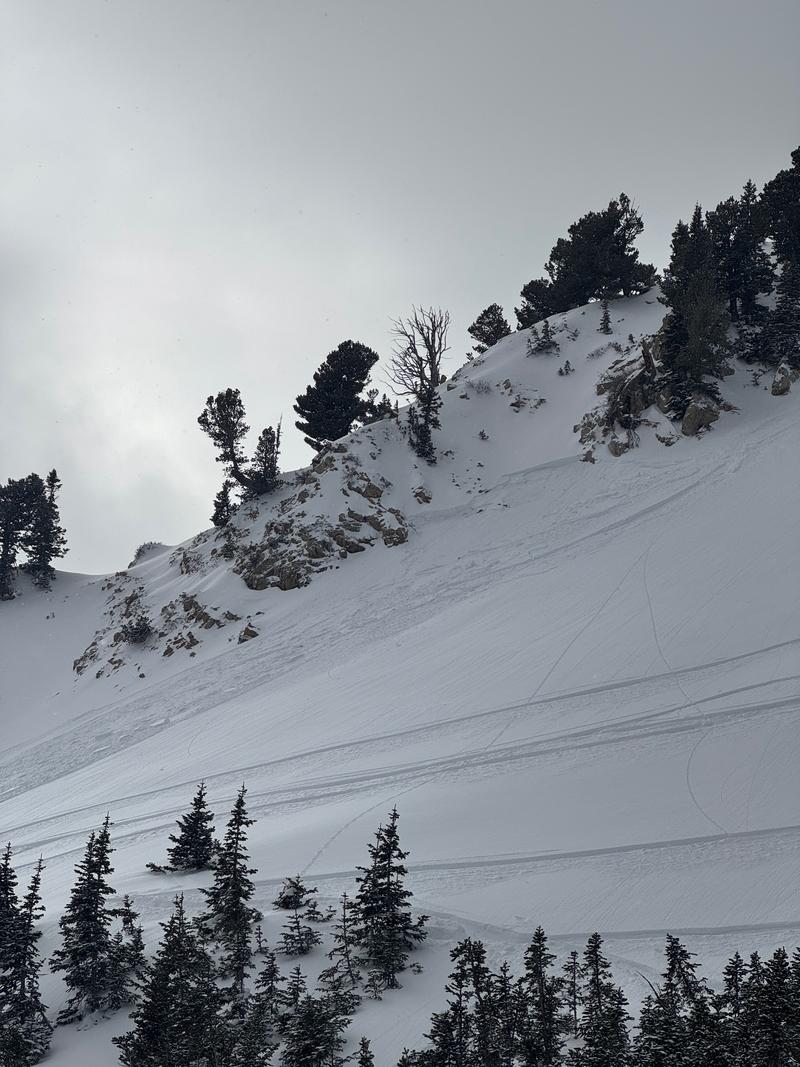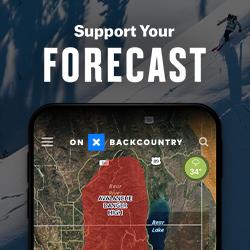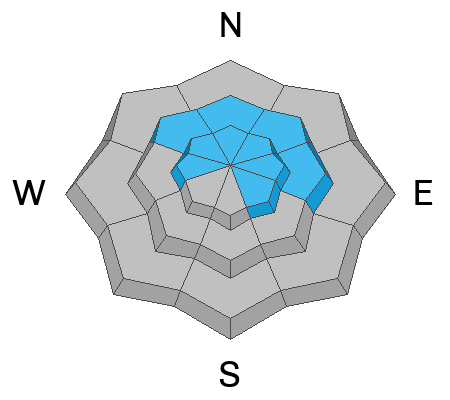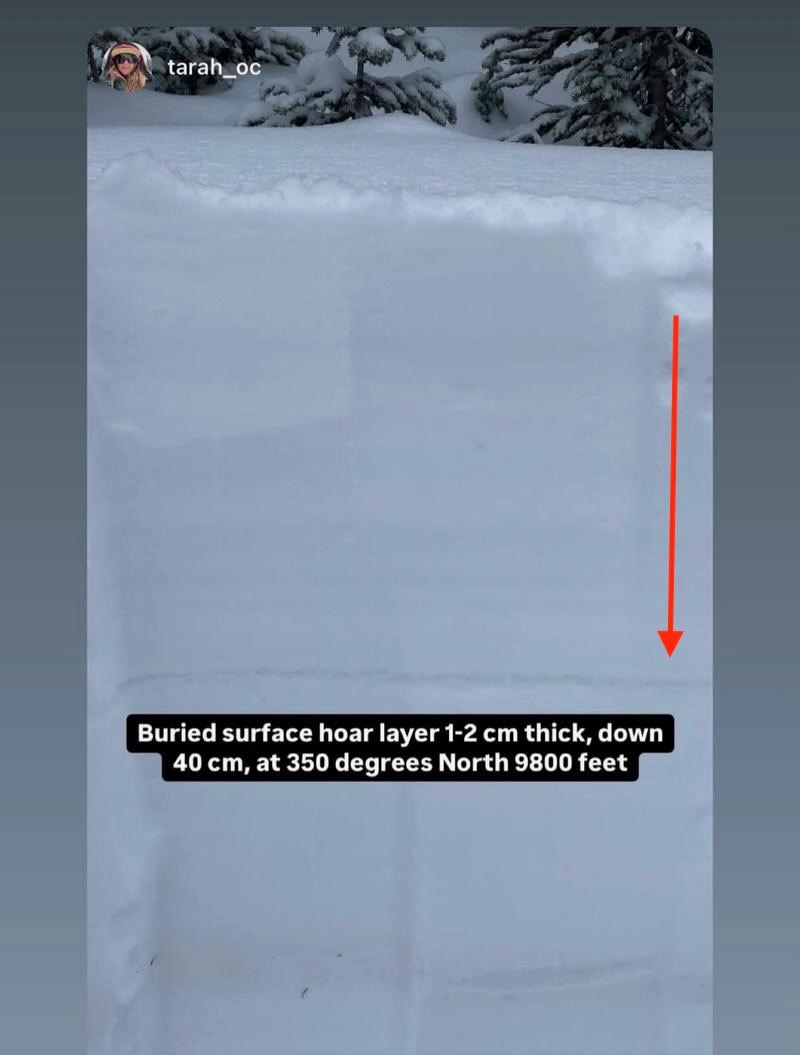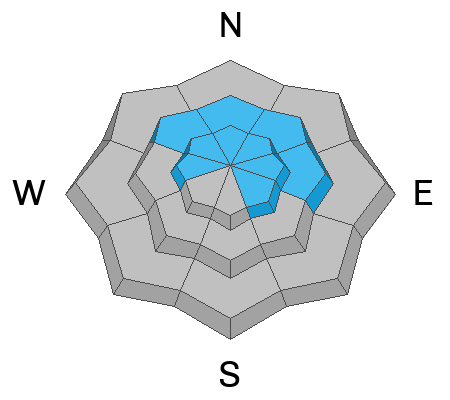Forecast for the Salt Lake Area Mountains

Issued by Dave Kelly on
Monday morning, December 16, 2024
Monday morning, December 16, 2024
Today, there is a CONSIDERABLE avalanche danger on upper elevation northwest-north-east facing aspects for triggering a wind-drifted snow avalanche failing on buried facets. These avalanches could be 2'-3' deep and up to 100' wide running up to 400' vertical. There is a MODERATE avalanche danger on upper elevation west and southeast aspects and mid elevation northwest-north-east facing terrain. The avalanche danger is LOW on all other aspects.
Recently formed wind slabs may be supportive enough to allow you to get further onto the slope before they break, making them all the more dangerous. Cautious route finding and conservative decision making is essential.
Recently formed wind slabs may be supportive enough to allow you to get further onto the slope before they break, making them all the more dangerous. Cautious route finding and conservative decision making is essential.

Low
Moderate
Considerable
High
Extreme
Learn how to read the forecast here



